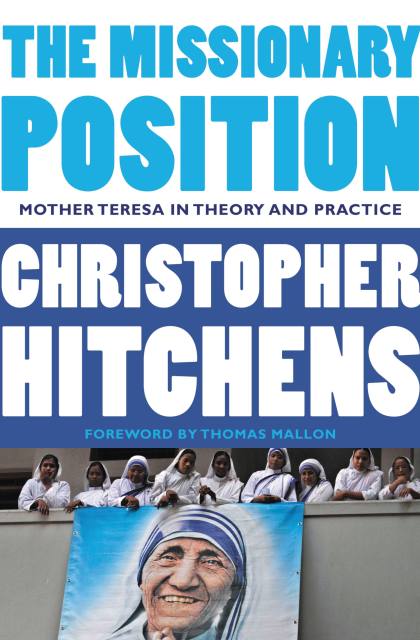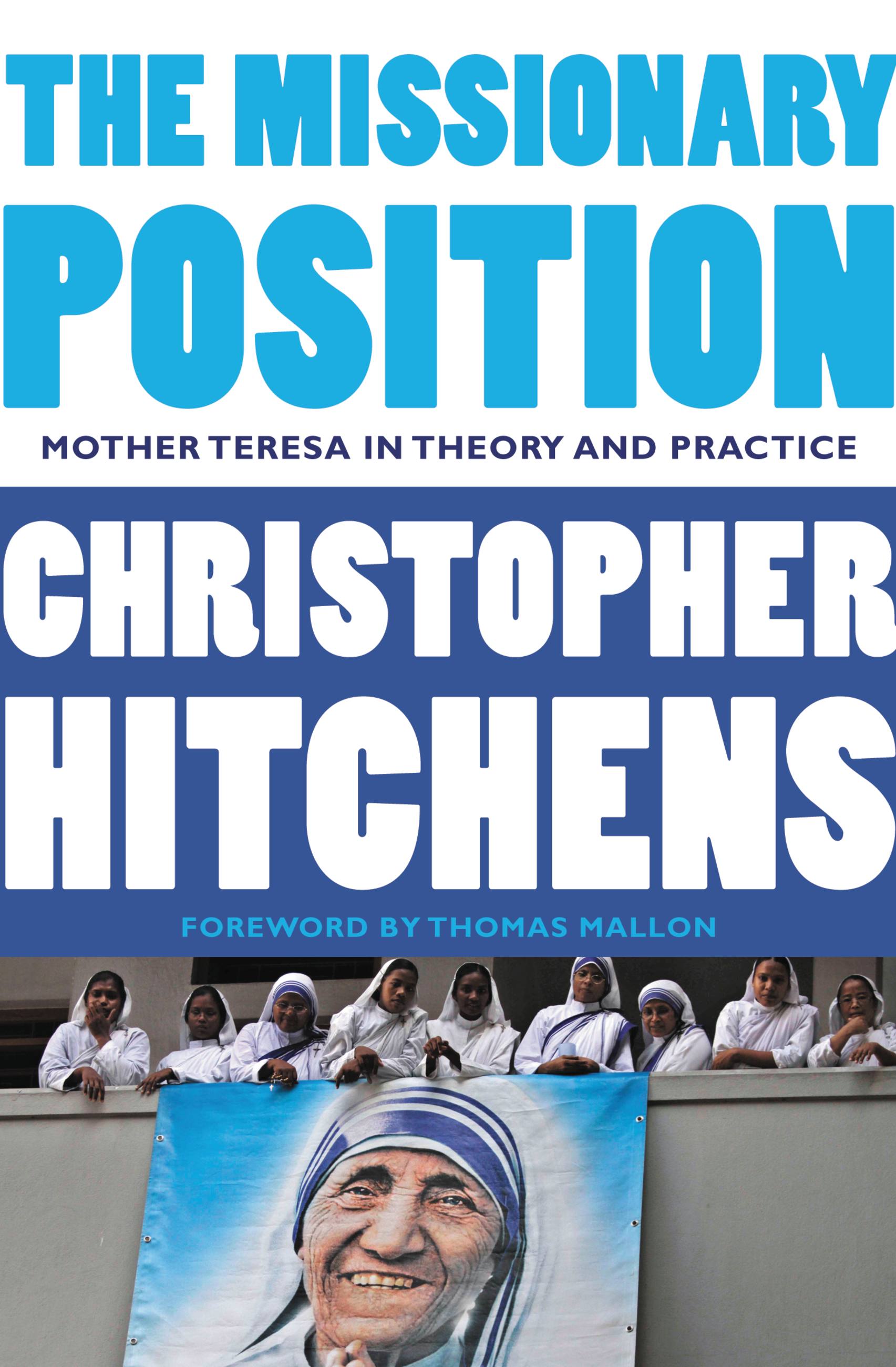By clicking “Accept,” you agree to the use of cookies and similar technologies on your device as set forth in our Cookie Policy and our Privacy Policy. Please note that certain cookies are essential for this website to function properly and do not require user consent to be deployed.
The Missionary Position
Mother Teresa in Theory and Practice
Contributors
Foreword by Thomas Mallon
Formats and Prices
- On Sale
- Apr 10, 2012
- Page Count
- 128 pages
- Publisher
- Twelve
- ISBN-13
- 9781455523016
Price
$9.99Format
Format:
This item is a preorder. Your payment method will be charged immediately, and the product is expected to ship on or around April 10, 2012. This date is subject to change due to shipping delays beyond our control.
Buy from Other Retailers:
“A religious fundamentalist, a political operative, a primitive sermonizer, and an accomplice of worldly secular powers. Her mission has always been of this kind. The irony is that she has never been able to induce anybody to believe her. It is past time that she was duly honored and taken at her word.”
Among his many books, perhaps none have sparked more outrage than The Missionary Position, Christopher Hitchens’s meticulous study of the life and deeds of Mother Teresa.
A Nobel Peace Prize recipient beatified by the Catholic Church in 2003, Mother Teresa of Calcutta was celebrated by heads of state and adored by millions for her work on behalf of the poor. In his measured critique, Hitchens asks only that Mother Teresa’s reputation be judged by her actions-not the other way around.
With characteristic élan and rhetorical dexterity, Hitchens eviscerates the fawning cult of Teresa, recasting the Albanian missionary as a spurious, despotic, and megalomaniacal operative of the wealthy who long opposed measures to end poverty, and fraternized, for financial gain, with tyrants and white-collar criminals throughout the world.
Among his many books, perhaps none have sparked more outrage than The Missionary Position, Christopher Hitchens’s meticulous study of the life and deeds of Mother Teresa.
A Nobel Peace Prize recipient beatified by the Catholic Church in 2003, Mother Teresa of Calcutta was celebrated by heads of state and adored by millions for her work on behalf of the poor. In his measured critique, Hitchens asks only that Mother Teresa’s reputation be judged by her actions-not the other way around.
With characteristic élan and rhetorical dexterity, Hitchens eviscerates the fawning cult of Teresa, recasting the Albanian missionary as a spurious, despotic, and megalomaniacal operative of the wealthy who long opposed measures to end poverty, and fraternized, for financial gain, with tyrants and white-collar criminals throughout the world.
Newsletter Signup
By clicking ‘Sign Up,’ I acknowledge that I have read and agree to Hachette Book Group’s Privacy Policy and Terms of Use







